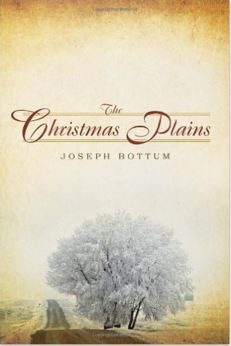 I spotted the announcement this morning: Over on Facebook, Fr. Antonio Spadaro, S.J.—one of the organizers of the Vatican Blogfest—reported enthusiastically that tomorrow is Chesterton Day at La Civilta Cattolica, the College of Catholic Writers of Civilization.
I spotted the announcement this morning: Over on Facebook, Fr. Antonio Spadaro, S.J.—one of the organizers of the Vatican Blogfest—reported enthusiastically that tomorrow is Chesterton Day at La Civilta Cattolica, the College of Catholic Writers of Civilization.
So I looked it up. The panelists! The topics! And it’s free!! Now all I need to do is buy another ticket to Rome, head to the Via di Porta Pinciana….
* * * * *
Well, that’s just silly. Funny how, when you do something so extravagant once, you start to forget that you can’t do it all the time.
I did, though, recollect some of the great writings of the prolific apologist / novelist / essayist. Take this challenge: Use one of Chesterton’s pithy quotes as your Facebook status one morning, and you’ll be setting a new record for “likes.” Everyone recognizes the wit and wisdom of the man who was dubbed by Pope Pius XI “Defender of the Catholic Faith.”
During his 62 years, Chesterton produced some 80 books, 200 short stories, several hundred poems, 4,000 essays, and a number of stage plays. He was a frequent speaker and debater, earning the nickname “The Apostle of Common Sense.” His opus of work ranged from novels (The Napoleon of Notting Hill, The Man Who Was Thursday) to biographies (Saint Thomas Aquinas: The Dumb Ox, and St. Francis of Assisi, The Everlasting Man), from mysteries (The Innocence of Father Brown) to epic poetry (Lepanto).
“A room without books,” Chesterton opined, “is like a body without a soul.”
“Art, like morality, consists in drawing the line somewhere.”
“Courage is almost a contradiction in terms. It means a strong desire to live taking the form of readiness to die.”
“I would maintain that thanks are the highest form of thought, and that gratitude is happiness doubled by wonder.”
Some humor for the business day: “I’ve searched all the parks in all the cities and found no statues of committees.”
And one of my favorites: “Christianity has not been tried and found wanting; it has been found difficult and not tried.”
* * * * *
Chesterton was a Catholic apologist extraordinaire, expressing and explaining his faith with dry wit and sound reasoning. In his essay “Why I Am a Catholic,” from the book Twelve Modern Apostles and Their Creeds (1926), Chesterton explained his own convictions with clarity and patience. He wrote:
Nine out of ten of what we call new ideas are simply old mistakes. The Catholic Church has for one of her chief duties that of preventing people from making those old mistakes; from making them over and over again forever, as people always do if they are left to themselves. The truth about the Catholic attitude toward heresy, or as some would say, towards liberty, can best be expressed perhaps by the metaphor of a map. The Catholic Church carries a sort of map of the mind which looks like the map of a maze, but which is in fact a guide to the maze. It has been compiled from knowledge which, even considered as human knowledge, is quite without any human parallel.
There is no other case of one continuous intelligent institution that has been thinking about thinking for two thousand years. Its experience naturally covers nearly all experiences; and especially nearly all errors. The result is a map in which all the blind alleys and bad roads are clearly marked, all the ways that have been shown to be worthless by the best of all evidence: the evidence of those who have gone down them.
He was a harsh critic of both Fundamentalism and Protestantism, warning that we must make the intellectual world safe for democracy, but must prevent mere reaction and the dreary repetition of the old mistakes.
He closes his essay, sadly:
There is no end to the dissolution of ideas, the destruction of all tests of truth, that has become possible since men abandoned the attempt to keep a central and civilized Truth, to contain all truths and trace out and refute all errors. Since then, each group has taken one truth at a time and spent the time in turning it into a falsehood. We have had nothing but movements; or in other words, monomanias. But the Church is not a movement but a meeting-place; the trysting-place of all the truths in the world.











